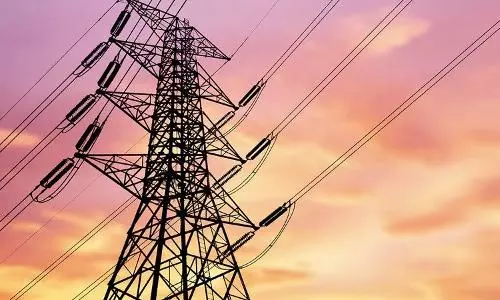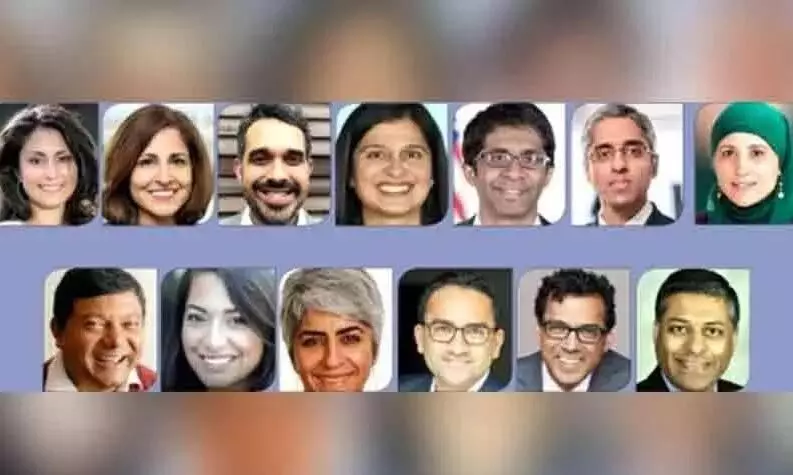
Two mind-sets: one here, the other there
text_fieldsWhen Joe Biden gets sworn in on Wednesday as the 46th president of the United States of America, there is much for India, the world's biggest democratic country, to celebrate. The prime factor to rejoice over is that for the first time in history, an Indian-origin Afro-American woman, Kamala Harris is becoming the vice president. Add to it the pleasant prospect of 20 Indian-origin members being on Biden's cabinet – and 17 of them in key positions. There is also the brighter dimension that 13 of the top officials are women. Among them are White House Office of Management & Budget Director Nira Tandon, US Surgeon General Dr Vivek Murthy and Associated Attorney General Vanita Gupta. It merits special mention that among them are Aisha Shah, and Sameera Fazili, both with roots in Kashmir region. Pakistan-American Ali Zaidi, Sri Lankan born Rohini Kosoglu, and Bangladeshi-origin Zayn Siddique are others with roots in the Indian sub-continent being assigned to roles in the nerve centre of US administration.
It is clear that all of them join the Biden team not on the basis of their racial origins, but thanks to their makings for the job and the commitment to their responsibility. At the same time, in America, where 32 crore people with whites in majority and holding most of the crucial positions, neither ultra racism nor narrow nationalism did pose a hurdle for President Joe Biden or his party before the appointment of Indian-born citizens who form a mere one percent of the population, or other immigrant communities in critical roles - a fact particularly relevant in current situation. It is especially so when Biden's predecessor was traversing the opposite path and did even brag that if the people of America gave him a second term, he would build a tall wall of racism. Therefore, if the US citizenry decided not to give Donald Trump another innings, it is logical to assume that their decision was driven by a spirit of humanity, sense of justice and regard for values. It is probably in realisation of this that Joe Biden started his corrective measures starting with his White House appointments.
Even as we get elated over 20-plus Indin-origin officials taking charge in different White House responsibilities, it would be worthwhile to take a look at the peculiar situation in our home country too. When the UPA secured a majority in the parliamentary election in 2004, the initial expectation was that Congress president Sonia Gandhi would be hoisted as the prime minister. But, to the surprise of every one, she gave that honour to the former Reserve Bank of India governor, Manmohan Singh, who was more of a bureaucrat though with finance ministry antecedents. It would be naïve to believe that it was his sheer expertise and experience in economics that set the stage for his getting the top job. As a matter of fact, the decision of the widow of former prime minister Rajiv Gandhi was quite in sync with her sense of the Indian psyche perceived as uncomfortable with an Italian-born woman becoming India's prime minister. Prior to that, she had taken over the leadership of the Congress Party at a stage when the party was drifting like a ship with a captain in turbulent waters – and only in response to the near unanimous clamour of party ranks. It was in protest against this that senior Congress leader Sharad Pawar left the party and formed NCP.
Ever since then, it has always been the wont of the Hindutva outfits to incite narrow public sentiments citing the Italian family background of the Congress leader. And currently with the assembly elections looming large in Assam and West Bengal, the same camp has been busy drumming up a brand of racial prejudice that foments unrest by scrutinising the citizenship of the nearly 18 to 20 crore religious minority members, who have been living in this land for generations. And the threat the Hindutva champions make is that they would implement the draconian citizenship law across the country. In Gujarat, the declaration as disturbed zone of the 28 housing societies in Rajkot, the constituency of state chief minister Vijay Rupani, is just another manifestation of the same malady. The reason for that step is to prevent Muslims from buying land or property in that area. Such a law is already in force in cities of Ahmedabad, Vadodra, Surat, Baruch and Godhra, a classic case of rank intolerance and racial hatred. On another front, the Shiv Sena-led government of Maharashtra, in which the NCP and Congress are alliance partners, is in a hurry to change the name of Aurangabad. The racist elements in power are unable to live with the fact that the district carries the name of a Mughal ruler Aurangazeb. Despite all that, we still give loud applause when Indo-Americans get appointed to top posts – hiding the Trumpism that is deep-rooted in us.
























